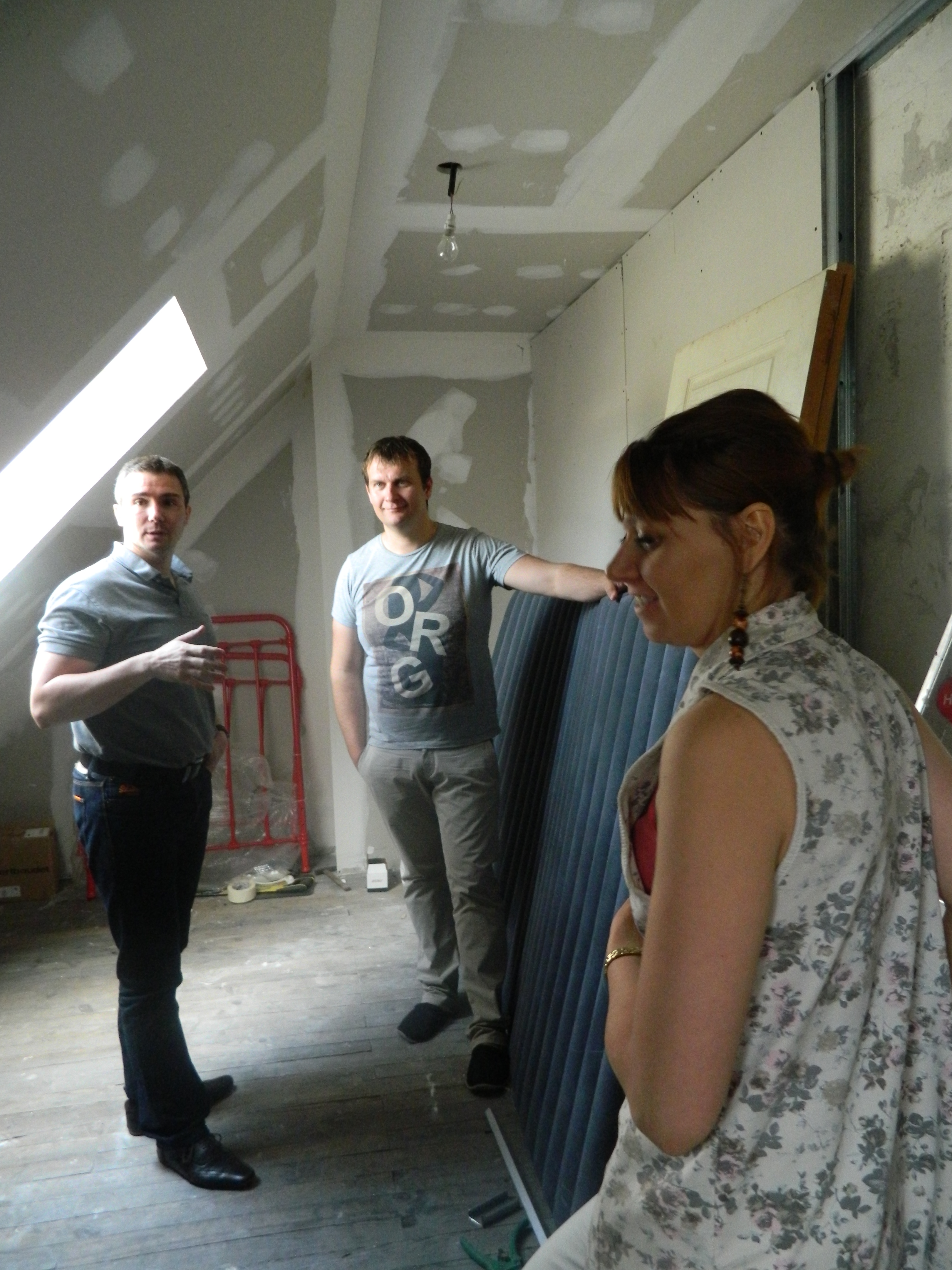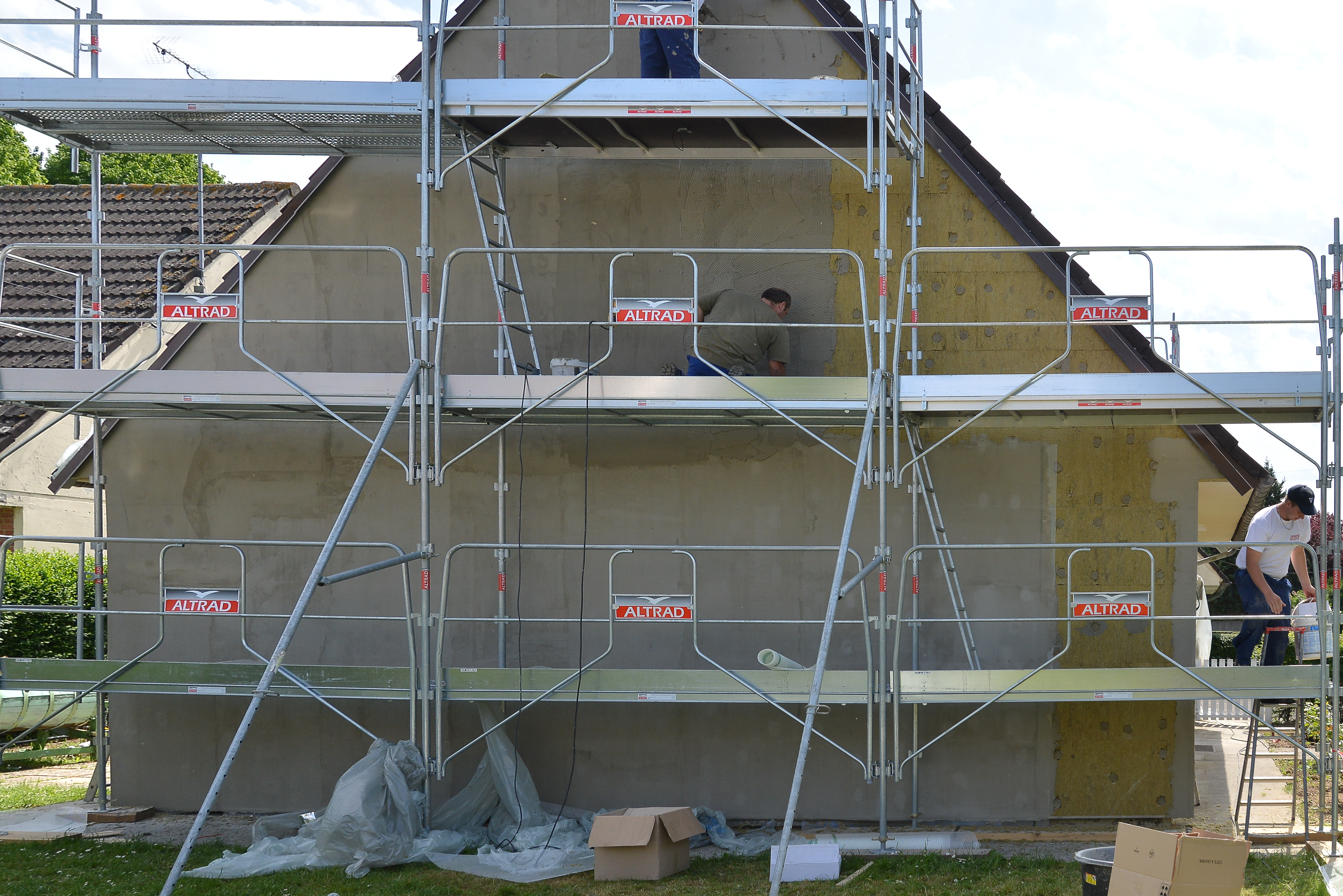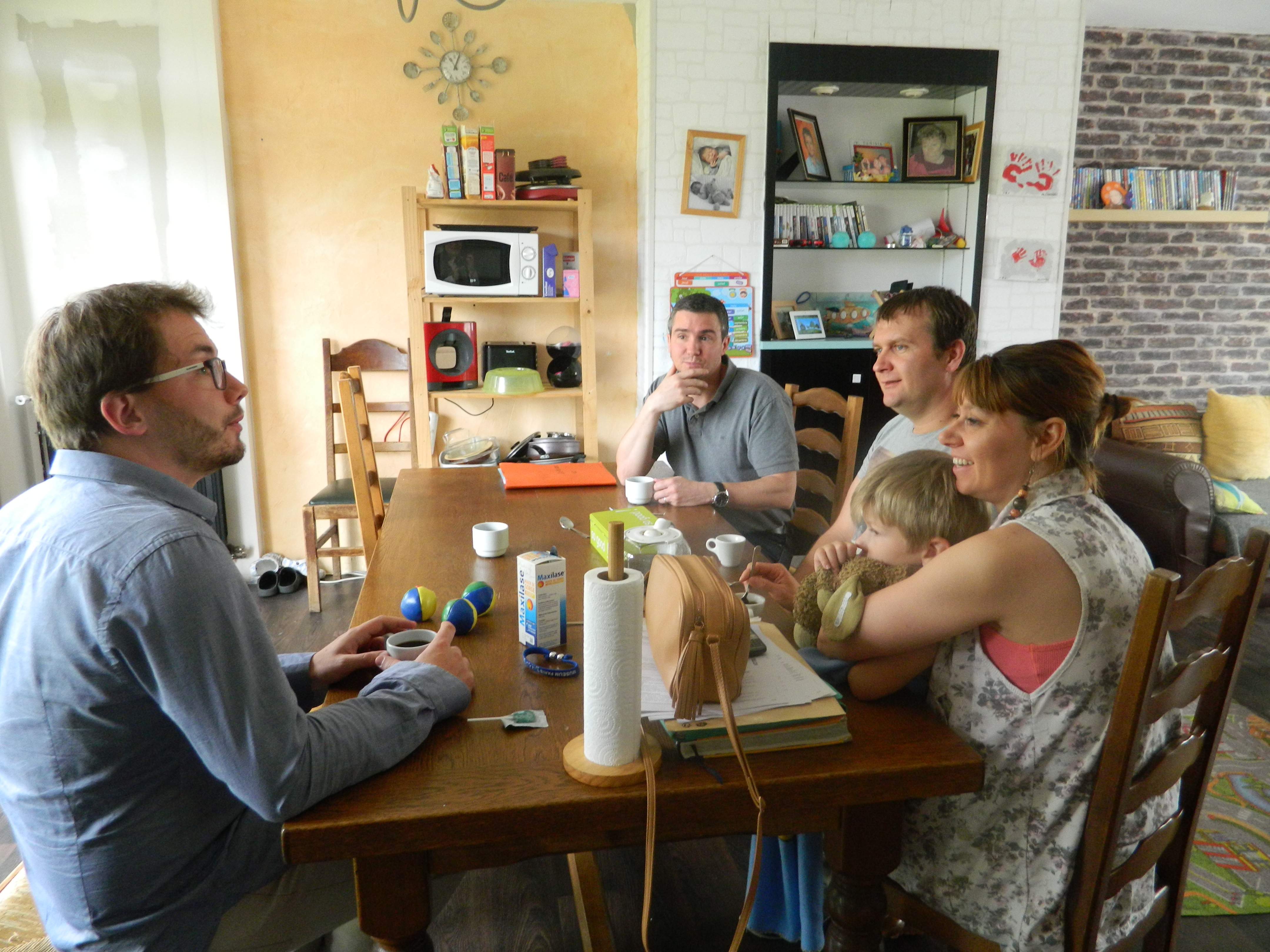Thanks to ELENA, the EIB's technical assistance initiative, France’s first energy renovation public service is supporting the restoration of a thousand individual and collective housing units in Picardy’s stock of private residential properties.
Thinking that they were going to save money, Mr and Mrs Ilic decided to change their windows and boiler which was more than 20 years old. In reality, however, they merely ended up heating the draughts in their house... with a monthly heating bill of EUR 300! “What we liked about Picardie Pass Rénovation was the fact that it was a turnkey solution; we didn’t have to do anything ourselves. And when we realised that our project would virtually pay for itself thanks to the energy savings generated, we figured that this was far better than paying bills without getting any extra comfort”, said Mr and Mrs Ilic.
Despite numerous initiatives to encourage thermal rehabilitation of buildings, it was recognised that certain stumbling blocks were stopping homeowners from taking the plunge. In this period of economic crisis and increasing climate challenges, Picardie Pass Rénovation has provided a suitable response to help the people of Picardy reduce their heating bills and improve their quality of life. Having lived in a cold house for a long time, Mr and Mrs Lambert, a retired couple living in Feuquières, said: “The system has enabled us to have a very comfortable home and spend less on energy bills. To be able to pay back EUR 130 a month over 25 years is very convenient and even if we die before then, the income from the sale of the house will pay off the debt.”
Launched at the end of 2013 by the former Picardy Region and the Regional Division of the Environment and Energy Efficiency Agency (ADEME), Picardie Pass Rénovation has ambitious targets: 2 000 renovated housing units by 2018 and then 10 000 a year. Backed by ELENA, it offers advice and tailored assistance before the work is carried out (in-depth thermal assessment, personalised works programme taking into account the financial situation of the household). As the work is being carried out, this assistance is provided by various occupational trades. Subsequently, a personalised service is proposed for a period of five years to monitor energy consumption. “Until the end of 2017, the pilot operations of Pass Rénovation will serve to test the design and make adjustments. In order to successfully conclude this phase, ELENA technical assistance has been requested”, noted Reinhard Six, chief engineer in the Energy Efficiency and Small-Scale Energy Projects Division of the European Investment Bank.
A single contact
The economic model that Picardie Pass Rénovation can now deploy thanks to the EIB loan involves offering the people of Picardy an easily identifiable local reference, a trustworthy operator and third party financing that makes paying for the work less of an obstacle. Pass subscribers have the choice between a two-in-one service combining comprehensive technical assistance and a tailored financing solution (staggered repayments over 15 to 25 years at a rate of 2.5%), or a technical component on its own. “So far, 70% of subscribers have opted for the two-in-one solution”, said Céline Willierval, communication and regional marketing manager for Picardie Pass Rénovation.
“To receive such assistance subscribers must pay a fee of EUR 1 860 which, at their request, can be integrated into the financing if the work is paid for by us; otherwise, it can be paid by the subscriber upon acceptance of the work”, noted Vincent Pibouleu, Director of Picardie Pass Rénovation.
A French success story

- Monitoring the work at the Ilics’ home
Three years after the launch of Picardie Pass Rénovation, some 4 107 households in Picardy have contacted the service, 2 223 thermal assessments have been conducted and 1 390 homes have been or are being renovated, at a total cost of EUR 29m. “We have received a large number of French and European delegations keen to know more about this initiative. Given their interest and the growing success of Picardie Pass Rénovation, I wouldn’t be surprised to see this system rolled out in other regions in France and Europe.”
The renovation work includes the standard features that you would expect: thermal insulation, installation of new windows, upgrading of heating and ventilation systems. Housing units heated by oil or electricity were targeted as a priority. Furthermore, to be economically viable, the renovations carried out must achieve 50%-75% energy savings, meaning that on average the work costs €18 000 for collective dwellings and €38 000 for individual homes.
The system is tailored to people of all ages and can also be combined with existing types of aid for such renovation projects (National Housing Agency (ANAH) subsidies, tax credits, interest-free environmental loans, aid from local and regional authorities). The Coppin-Wachnicki family with four children realised their dream of buying their own home thanks also to this unique arrangement in France: “We had been living opposite the house that was for sale since 2008. We felt that it had potential but it needed a lot of work in addition to the purchase price. Without Picardie Pass Rénovation, we wouldn’t have had the same security to be able to complete our project successfully. It was our only funding option on top of the bank loan that we needed to buy the house.”
A significant impact on local employment

- Picardie Pass Rénovation, a godsend for local businesses
Currently, 650 local businesses are registered on the Pass contracts platform and 250 of these work regularly with the Pass Rénovation initiative, equating to 2 730 jobs. “Thanks to Pass Rénovation, the equivalent of 300 jobs have been saved or created”, concludes Vincent Pibouleu proudly.
These results are no coincidence, however. Since the initiative was set up, Picardie Pass Rénovation has worked closely with professional organisations such as the French Building Federation (Fédération Française du Bâtiment, FFB) and CAPEB, an employers’ association representing the building trades, with the aim of encouraging small businesses to respond to calls for tender: “Calls for tender can discourage small-scale tradesmen. To prevent these contracts from being captured by large companies, we have worked hard to raise awareness among these businesses”, pointed out Mr Pibouleu.
To adapt to the day-to-day reality of small-scale building firms, the Pass has also provided for the partner firm to be eligible for an advance payment of 30% at the beginning of the contract, thus sparing it from having to release funds.

